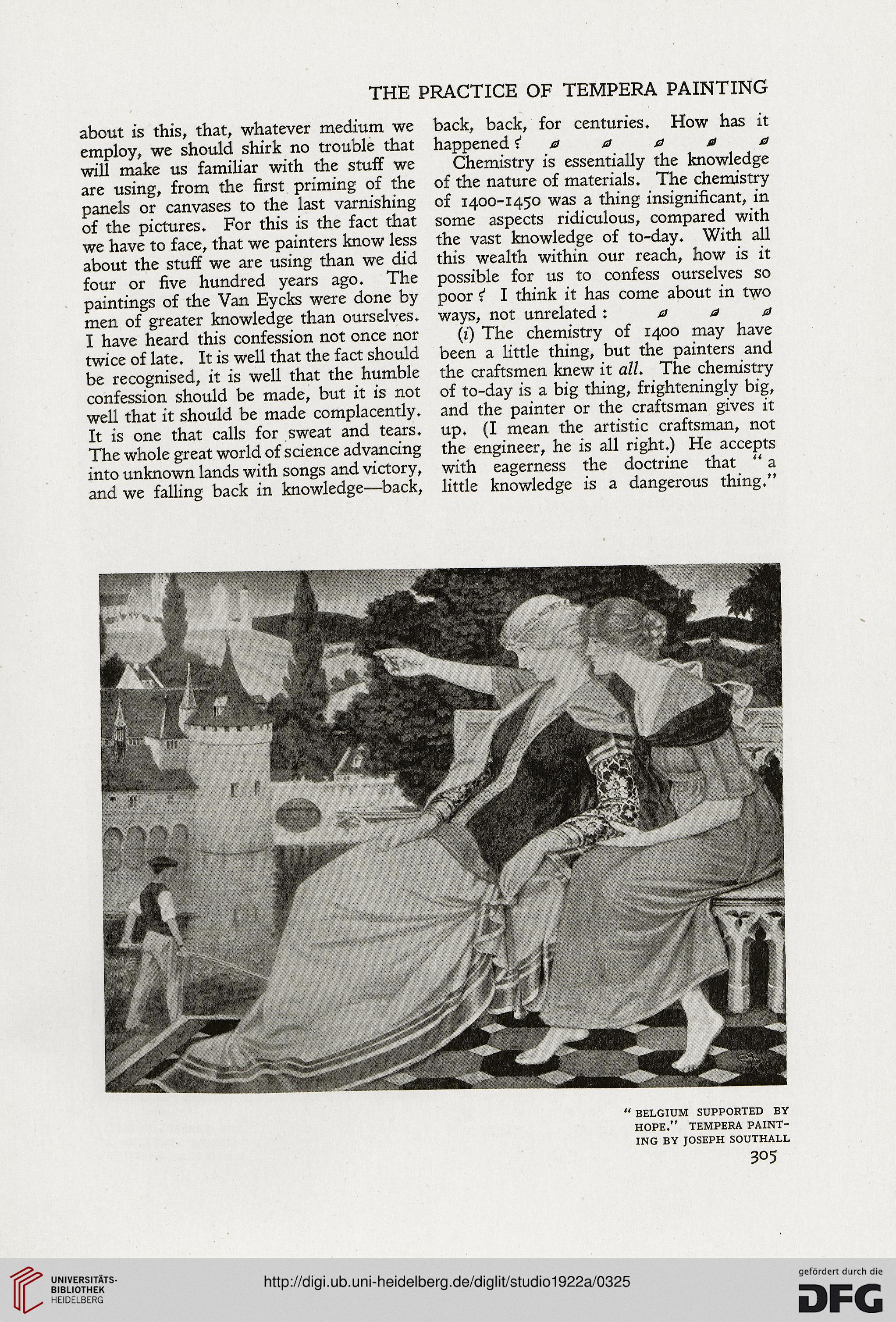THE PRACTICE OF TEMPERA PAINTING
about is this, that, whatever medium we
employ, we should shirk no trouble that
will make us familiar with the stuff we
are using, from the first priming of the
panels or canvases to the last varnishing
of the pictures. For this is the fact that
we have to face, that we painters know less
about the stuff we are using than we did
four or five hundred years ago. The
paintings of the Van Eycks were done by
men of greater knowledge than ourselves.
I have heard this confession not once nor
twice of late. It is well that the fact should
be recognised, it is well that the humble
confession should be made, but it is not
well that it should be made complacently.
It is one that calls for sweat and tears.
The whole great world of science advancing
into unknown lands with songs and victory,
and we falling back in knowledge—back,
back, back, for centuries. How has it
happened < a a a a a
Chemistry is essentially the knowledge
of the nature of materials. The chemistry
of 1400-1450 was a thing insignificant, in
some aspects ridiculous, compared with
the vast knowledge of to-day. With all
this wealth within our reach, how is it
possible for us to confess ourselves so
poor i I think it has come about in two
ways, not unrelated : 0 a a
(i) The chemistry of 1400 may have
been a little thing, but the painters and
the craftsmen knew it all. The chemistry
of to-day is a big thing, frighteningly big,
and the painter or the craftsman gives it
up. (I mean the artistic craftsman, not
the engineer, he is all right.) He accepts
with eagerness the doctrine that " a
little knowledge is a dangerous thing."
about is this, that, whatever medium we
employ, we should shirk no trouble that
will make us familiar with the stuff we
are using, from the first priming of the
panels or canvases to the last varnishing
of the pictures. For this is the fact that
we have to face, that we painters know less
about the stuff we are using than we did
four or five hundred years ago. The
paintings of the Van Eycks were done by
men of greater knowledge than ourselves.
I have heard this confession not once nor
twice of late. It is well that the fact should
be recognised, it is well that the humble
confession should be made, but it is not
well that it should be made complacently.
It is one that calls for sweat and tears.
The whole great world of science advancing
into unknown lands with songs and victory,
and we falling back in knowledge—back,
back, back, for centuries. How has it
happened < a a a a a
Chemistry is essentially the knowledge
of the nature of materials. The chemistry
of 1400-1450 was a thing insignificant, in
some aspects ridiculous, compared with
the vast knowledge of to-day. With all
this wealth within our reach, how is it
possible for us to confess ourselves so
poor i I think it has come about in two
ways, not unrelated : 0 a a
(i) The chemistry of 1400 may have
been a little thing, but the painters and
the craftsmen knew it all. The chemistry
of to-day is a big thing, frighteningly big,
and the painter or the craftsman gives it
up. (I mean the artistic craftsman, not
the engineer, he is all right.) He accepts
with eagerness the doctrine that " a
little knowledge is a dangerous thing."




